WASHINGTON/NEW YORK, USA: A recent report from the Pew Center on the States paints a sad picture about the oral health of many children in the United States. The paper, titled The Cost of Delay: State Dental Policies Fail One in Five Children, claims that millions of disadvantaged children suffer from sub-par dental health yet do not have access to adequate dental care. It also states that the lack of access to care could affect kids throughout their childhoods and into their adult lives.
“A ‘simple cavity’ can snowball into a lifetime of challenges,” the report states. “Children with severe dental problems are more likely to grow up to be adults with severe dental problems, impairing their ability to work productively and maintain gainful employment.”
Leaders of two of the nation’s leading dental associations weighed in with their opinions on the report.
“We welcome the Pew organization to our longstanding fight to improve the lives of American children by helping more of them enjoy the good oral health that too many of them now lack,” said Dr Ron Tankersley, president of the American Dental Association (ADA). “Pew’s presenting its information in the form of a report card makes it easy for anyone to understand that too many kids in too many states are suffering. And we face huge challenges in changing that.”
“We don’t agree with everything in the report,” Dr Tankersley continued. “But certainly, it highlights some of the major policy areas that the ADA and state dental societies have advocated for years—things like increased Medicaid funding, school sealant programs and community water fluoridation. It also highlights the urgent need for reliable routine data collection so that policies are well informed and kids are not left suffering.”
Dr David F. Halpern, president of the Academy of General Dentistry (AGD), offered similar sentiments.
“With more than 51 million school hours lost each year because of dental-related illness, the way in which states ensure that children have access to oral health care services is clearly an issue that deserves the devotion and dedication necessary to reach a solution so no child suffers needlessly from dental pain,” Dr Halpern said.
The Pew Center report is not all grim. It states that a number of cost-effective improvements can be made.
“By making targeted investments in effective policy approaches, states can help eliminate the pain, missed school hours and long-term health and economic consequences of untreated dental disease among kids,” the report says. “Although a handful of states are leading the way in breaking down these barriers, every state must do more to put proven policies in place to ensure dental health and access to care for America’s children.”
“The report does omit some policy areas that we believe are equally important to improving children’s access to care,” Dr Tankersley said. “For instance, some states have innovative programs—like student loan forgiveness and tax incentives—to help dentists establish practices in underserved areas or practice in community health centers. And when it comes to fixing Medicaid, money is a huge issue, but it isn’t the only issue. Patients and parents need oral health education to help them take care of themselves and their families to prevent disease. Many of them need additional services, like transportation, in order to be able to get to dental appointments. If Medicaid did a better job of these things, treatment costs would decrease, because we would be preventing more disease and treating less.”
It is also the AGD position that improvements in Medicaid reimbursements to meet the costs of service to the public, and expansions in water fluoridation and sealant programs, are needed.
The AGD is opposed to independent dental providers who have not graduated from dental schools performing irreversible procedures, for the very reason that a provider who has not met the minimum educational requirements in dentistry might be a danger to the patient if he or she is providing the primary care. According to the AGD, accessibility without quality echoes the ‘something is better than nothing’ approach to care, which does not ultimately serve the public need.
Both the ADA and the AGD have worked with state and federal agencies, dental schools and other organizations to promote public funding, volunteerism and loan forgiveness for dental students working in underserved areas.
“The ADA and state dental societies have a long history as the nation’s leading advocates for oral health,” Dr Tankersley continued. “ADA members donated some US$2.16 billion in free care to disadvantaged children and adults, both as individuals and through such programs as Give Kids A Smile and Missions of Mercy, in 2007 alone. But we’re the first to admit that we can’t do this alone, and charity is no substitute for an effective, equitable oral health delivery system. We’re grateful for assistance from the Pew Center and others who are willing to lend a hand in what undoubtedly will remain a long, tough fight.”
CHICAGO, IL, USA: Nearly 150 stakeholders from non-profit groups, government agencies and private industry met 23 through 25 March at a summit on access to ...
LOUISVILLE, Ky., USA: Access to oral health care has increased since 2001, yet more children face urgent dental needs, according to a new study ...
WASHINGTON, D.C., USA: The American Dental Association (ADA) has released its inaugural “Action for Dental Health: Report to Congress,” which ...
MELVILLE, N.Y., USA: For the 14th consecutive year, Henry Schein Inc. is joining 26 of its supplier partners to help expand access to oral health care for ...
WASHINGTON, DC, USA: On June 7, Sen. Bernard Sanders, I-Vt., and Rep. Elijah Cummings, D-Md., introduced the Comprehensive Dental Reform Act of 2012 in the ...
CHICAGO, US: Despite growing recognition of the importance of oral health to overall health, access to dental care remains out of reach for millions of ...
CHICAGO, IL, USA: “Access to care is really what the message is,” said Ken Kaufman, president and chief financial officer of Aribex, supplier of...
NEW YORK, N.Y., USA: quip, an oral health company known for making oral care more simple, accessible and enjoyable with its ADA-accepted electric ...
CHCAGO, Ill., USA: With the generous support of its 2012 donors, the Academy of General Dentistry Foundation — the philanthropic partner of the ...
LONDON, UK: Most American children do not see their family dentist until they are well over 2 years old, far later than is recommended by both dental ...
Live webinar
Tue. 24 February 2026
1:00 PM EST (New York)
Prof. Dr. Markus B. Hürzeler
Live webinar
Tue. 24 February 2026
3:00 PM EST (New York)
Prof. Dr. Marcel A. Wainwright DDS, PhD
Live webinar
Wed. 25 February 2026
11:00 AM EST (New York)
Prof. Dr. Daniel Edelhoff
Live webinar
Wed. 25 February 2026
1:00 PM EST (New York)
Live webinar
Wed. 25 February 2026
8:00 PM EST (New York)
Live webinar
Tue. 3 March 2026
11:00 AM EST (New York)
Dr. Omar Lugo Cirujano Maxilofacial
Live webinar
Tue. 3 March 2026
8:00 PM EST (New York)
Dr. Vasiliki Maseli DDS, MS, EdM



 Austria / Österreich
Austria / Österreich
 Bosnia and Herzegovina / Босна и Херцеговина
Bosnia and Herzegovina / Босна и Херцеговина
 Bulgaria / България
Bulgaria / България
 Croatia / Hrvatska
Croatia / Hrvatska
 Czech Republic & Slovakia / Česká republika & Slovensko
Czech Republic & Slovakia / Česká republika & Slovensko
 France / France
France / France
 Germany / Deutschland
Germany / Deutschland
 Greece / ΕΛΛΑΔΑ
Greece / ΕΛΛΑΔΑ
 Hungary / Hungary
Hungary / Hungary
 Italy / Italia
Italy / Italia
 Netherlands / Nederland
Netherlands / Nederland
 Nordic / Nordic
Nordic / Nordic
 Poland / Polska
Poland / Polska
 Portugal / Portugal
Portugal / Portugal
 Romania & Moldova / România & Moldova
Romania & Moldova / România & Moldova
 Slovenia / Slovenija
Slovenia / Slovenija
 Serbia & Montenegro / Србија и Црна Гора
Serbia & Montenegro / Србија и Црна Гора
 Spain / España
Spain / España
 Switzerland / Schweiz
Switzerland / Schweiz
 Turkey / Türkiye
Turkey / Türkiye
 UK & Ireland / UK & Ireland
UK & Ireland / UK & Ireland
 International / International
International / International
 Brazil / Brasil
Brazil / Brasil
 Canada / Canada
Canada / Canada
 Latin America / Latinoamérica
Latin America / Latinoamérica
 China / 中国
China / 中国
 India / भारत गणराज्य
India / भारत गणराज्य
 Pakistan / Pākistān
Pakistan / Pākistān
 Vietnam / Việt Nam
Vietnam / Việt Nam
 ASEAN / ASEAN
ASEAN / ASEAN
 Israel / מְדִינַת יִשְׂרָאֵל
Israel / מְדִינַת יִשְׂרָאֵל
 Algeria, Morocco & Tunisia / الجزائر والمغرب وتونس
Algeria, Morocco & Tunisia / الجزائر والمغرب وتونس
 Middle East / Middle East
Middle East / Middle East



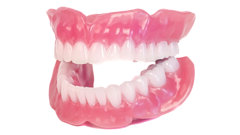
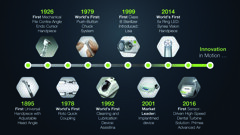



























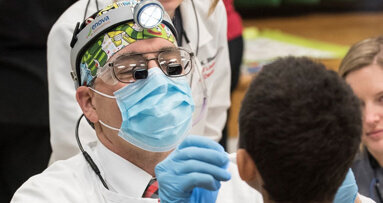
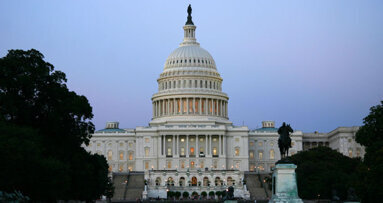

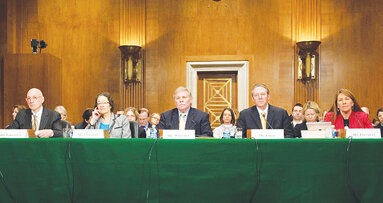





















To post a reply please login or register